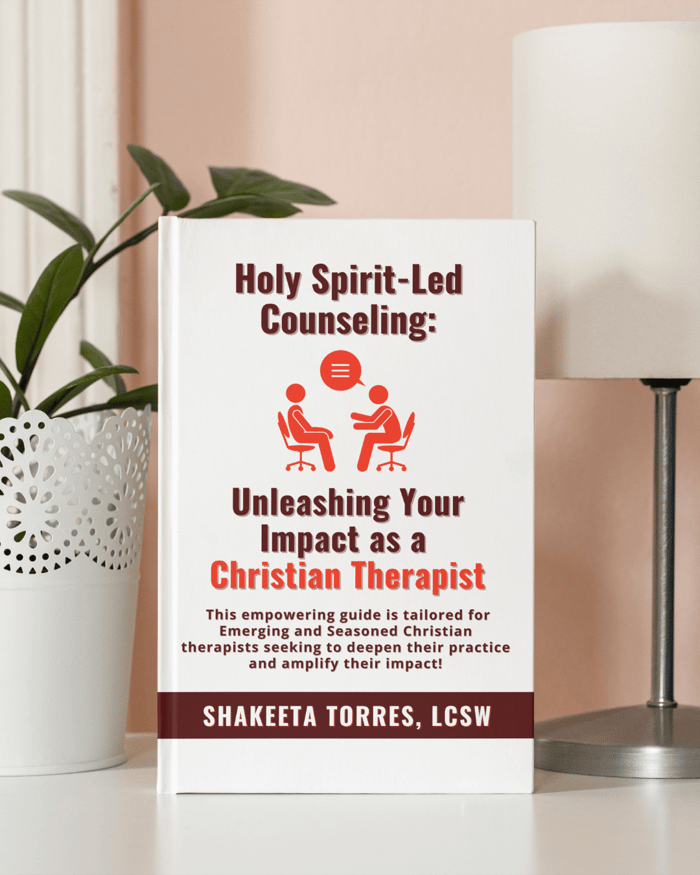Table of Contents
Understanding New Age Practices: Considerations for Christian Therapists
Understanding New Age Practices: Considerations for Christian Therapists
As Christian therapists, we are entrusted with the sacred responsibility of offering counsel, healing, and guidance rooted in biblical truth. In a world where New Age practices are becoming increasingly popular, it is crucial to discern how these belief systems align—or conflict—with a Christian counseling approach. While some elements of New Age spirituality may appear harmless or even therapeutic, it is essential to critically evaluate their origins, implications, and potential spiritual consequences.
This article explores the dangers of incorporating New Age techniques into Christian therapy, offers biblical wisdom for discernment, and provides faith-based alternatives to ensure our counseling practices remain Christ-centered and aligned with God’s Word.
What Are New Age Practices?
New Age spirituality is an umbrella term that encompasses a diverse range of beliefs, healing techniques, and mystical philosophies. Many New Age practices focus on self-discovery, energy manipulation, and esoteric wisdom, often borrowing elements from Eastern religions, pagan traditions, and occult philosophies.
Common New Age practices include:
✅ Meditation techniques that promote spiritual enlightenment outside of Christ
✅ Energy healing such as Reiki, chakra balancing, or crystal therapy
✅ Astrology, tarot cards, and divination for seeking guidance
✅ Law of attraction and manifestation philosophies
✅ Channeling, spirit guides, or past life regression
While these practices may appear harmless or beneficial at first glance, they often contradict biblical teachings and can lead individuals into spiritual deception. As Christian therapists, we must remain vigilant and discerning to ensure our counseling approach is in line with God’s truth.
The Dangers of New Age Practices in Christian Therapy
The integration of New Age philosophies into Christian counseling presents serious risks, not only for the spiritual well-being of clients but also for the integrity of biblical counseling. Below are five key concerns Christian therapists should be aware of:
1. Syncretism: Blending Christianity with Unbiblical Beliefs
One of the biggest dangers of incorporating New Age practices into Christian therapy is syncretism, or the blending of Christian beliefs with non-Christian spiritual practices. This mixture can lead to spiritual confusion and distort biblical truth.
📖 Scripture Reference:
“Take care that you be not ensnared to follow them after they have been destroyed before you, and that you do not inquire about their gods, saying, ‘How did these nations serve their gods?—that I also may do the same.’ You shall not worship the Lord your God in that way…” — Deuteronomy 12:30-31 (ESV)
God commands His people to remain separate from pagan practices. Christian therapists must ensure that the methods and principles they employ are firmly rooted in God’s Word rather than a mixture of human philosophies and spiritual deception.
2. Deceptive Spiritual Influences
Many New Age practices involve engaging with spiritual energies or entities. While these practices may seem mystical or enlightening, they can expose individuals to demonic influences or deceptive spirits that masquerade as light (2 Corinthians 11:14).
📖 Scripture Reference:
“For we do not wrestle against flesh and blood, but against the rulers, against the authorities, against the cosmic powers over this present darkness, against the spiritual forces of evil in the heavenly places.” — Ephesians 6:12 (ESV)
As Christian therapists, we must be aware that spiritual warfare is real. Practices such as Reiki, channeling, or energy healing may unknowingly open doors to demonic activity, leading to spiritual oppression rather than healing.
3. The Danger of Self-Exaltation
Many New Age teachings encourage individuals to seek their inner divinity, implying that humans can become gods or attain spiritual enlightenment on their own. This ideology is in direct opposition to Christianity, where we recognize that only God is sovereign.
📖 Scripture Reference:
“I am the Lord, and there is no other, besides me, there is no God…” — Isaiah 45:5 (ESV)
Christian counseling should always point people toward dependence on God, not self-exaltation or the belief that healing can come from within apart from Christ.
4. Self-Reliance vs. Dependence on God
While self-improvement and personal growth are valuable, New Age practices often promote the illusion of self-sufficiency, leading individuals to trust in their own power rather than in God’s wisdom and guidance.
📖 Scripture Reference:
“Trust in the Lord with all your heart, and do not lean on your own understanding. In all your ways acknowledge him, and he will make straight your paths.” — Proverbs 3:5-6 (ESV)
As Christian therapists, we must guide clients to depend on God’s strength rather than self-sufficiency, teaching them to seek His guidance, healing, and transformation.
5. Emotional and Spiritual Harm
Many New Age healing techniques claim to bring peace and enlightenment, but they can lead to spiritual confusion, emotional distress, and even demonic oppression. Practices like past life regression, energy work, and psychic readings can open individuals to false revelations that pull them away from the truth of God’s Word.
📖 Scripture Reference:
“And the peace of God, which surpasses all understanding, will guard your hearts and your minds in Christ Jesus.” — Philippians 4:7 (ESV)
True peace and healing come only from Christ, not from mystical or occult practices.
How Christian Therapists Can Maintain a Faith-Based Approach
To ensure that Christian counseling remains rooted in biblical truth, therapists should take the following steps:
✅ 1. Practice Discernment and Education
Equip yourself with biblical knowledge and study New Age practices to recognize potential conflicts with Christian doctrine.
✅ 2. Set Clear Boundaries
Clearly communicate your faith-based approach to clients, setting healthy boundaries around what practices you will and will not incorporate.
✅ 3. Offer Biblical Alternatives
Instead of meditation rooted in Eastern mysticism, encourage clients to meditate on Scripture (Psalm 1:2). Instead of energy healing, focus on prayer and spiritual renewal through Christ.
✅ 4. Seek Accountability
Surround yourself with Christian mentors, pastors, or fellow counselors who can hold you accountable and provide wisdom and guidance.
✅ 5. Always Point Clients to Christ
Above all, ensure that every aspect of counseling directs clients to Jesus Christ, the ultimate source of healing, peace, and restoration.
Final Thoughts
As Christian therapists, we have a responsibility to protect our clients from spiritual deception while guiding them toward biblical healing and wholeness. By remaining firm in faith, rejecting New Age philosophies, and relying solely on God’s truth, we can fulfill our calling to counsel with integrity, wisdom, and discernment.
If you’re looking for support and guidance in maintaining a biblically sound practice, consider joining our Christian Therapist Mentorship Program today!
📖 “Sanctify them in the truth; Your Word is truth.” — John 17:17 (ESV)
In addition, check out this resource in ebook or book format. Click on the image to learn more! This book also includes a 17 Part Video Series.
FAQs
1. Why should Christian therapists avoid New Age practices?
Christian therapists should avoid New Age practices because many of them conflict with biblical principles and can open doors to spiritual deception. Practices like energy healing, manifestation, and divination are rooted in esoteric spirituality, which does not align with Christian faith. The Bible warns against engaging in occult practices:
📖 Scripture Reference:
“Let no one be found among you who… practices divination or sorcery, interprets omens, engages in witchcraft, or casts spells.” — Deuteronomy 18:10-11 (NIV)
Instead of relying on self-empowerment techniques, Christian therapists should guide clients toward biblical healing through prayer, Scripture, and reliance on Jesus Christ as the ultimate healer.
2. What are some common New Age practices that Christian therapists should be cautious of?
Many New Age beliefs and techniques can subtly infiltrate Christian therapy. Christian therapists should be cautious of practices such as:
• Energy Healing (Reiki, Chakra Balancing, Crystal Healing) – Claims to channel “universal energy” rather than relying on God’s healing power.
• Mindfulness Meditation (Rooted in Eastern Religions) – Encourages emptying the mind instead of meditating on God’s Word (Psalm 1:2).
• Manifestation & Law of Attraction – Promotes self-reliance and personal “divinity” instead of trusting in God’s will.
• Astrology, Tarot, and Divination – Seeking guidance from spirits and omens instead of God’s wisdom (Isaiah 47:13-14).
• Past Life Regression and Spirit Guides – Leads to spiritual deception rather than truth in Jesus Christ (John 14:6).
Christian therapists must discern whether a practice aligns with biblical truth or contradicts Christian counseling principles.
3. How can Christian therapists provide effective counseling without using New Age methods?
Christian therapists can offer faith-based counseling by integrating biblical wisdom with therapeutic techniques that align with Scripture. Here are some effective Christian alternatives:
• Biblical Meditation & Prayer – Instead of Eastern meditation, encourage clients to meditate on Scripture (Joshua 1:8).
• Holy Spirit-Led Healing – Instead of Reiki or energy work, rely on prayer, anointing, and spiritual renewal.
• Christ-Centered Therapy Models – Use approaches that incorporate Christian values, such as Cognitive Behavioral Therapy (CBT) with a biblical perspective.
• Deliverance & Inner Healing – Address spiritual strongholds through prayer, repentance, and biblical counseling.
• Christian Community & Mentorship – Encourage clients to seek pastoral guidance, church fellowship, and biblical discipleship.
By keeping therapy Christ-focused, Christian therapists ensure their methods promote true spiritual healing rather than relying on New Age philosophies.
4. What does the Bible say about mixing Christianity with New Age beliefs?
The Bible strongly warns against mixing Christian faith with pagan or occult practices. The blending of Christianity and New Age spirituality is known as syncretism, which leads to spiritual confusion and idolatry.
📖 Scripture Reference:
“Do not conform to the pattern of this world, but be transformed by the renewing of your mind.” — Romans 12:2 (NIV)
Other verses that warn against incorporating unbiblical spiritual practices:
• 2 Corinthians 6:14-15 – “What fellowship can light have with darkness?”
• 1 John 4:1 – “Test the spirits to see whether they are from God.”
• Colossians 2:8 – “See to it that no one takes you captive through hollow and deceptive philosophy.”
As Christian therapists, our counseling approach must remain firmly grounded in the Word of God, ensuring that our methods reflect biblical truth rather than worldly philosophies.
5. How can Christian therapists educate themselves about the dangers of New Age practices?
Christian therapists can stay informed and discerning by actively educating themselves on both biblical counseling principles and the dangers of New Age deception. Here’s how:
✅ Study Scripture – Deepen your understanding of what the Bible says about spiritual warfare, false teachings, and discernment.
✅ Read Books by Christian Apologists – Authors like C.S. Lewis, John MacArthur, and A.W. Tozer provide insights on biblical doctrine vs. false spirituality.
✅ Attend Christian Counseling Conferences – Engage in faith-based mental health education and biblical therapy training.
✅ Follow Christian Counseling Organizations – Groups like American Association of Christian Counselors (AACC) offer resources for Christian therapists.
✅ Join a Christian Therapist Mentorship Program – Surround yourself with like-minded professionals who uphold biblical counseling principles.
Staying rooted in God’s Word and equipped with discernment helps Christian therapists navigate modern therapy while remaining faithful to Christ-centered healing.






